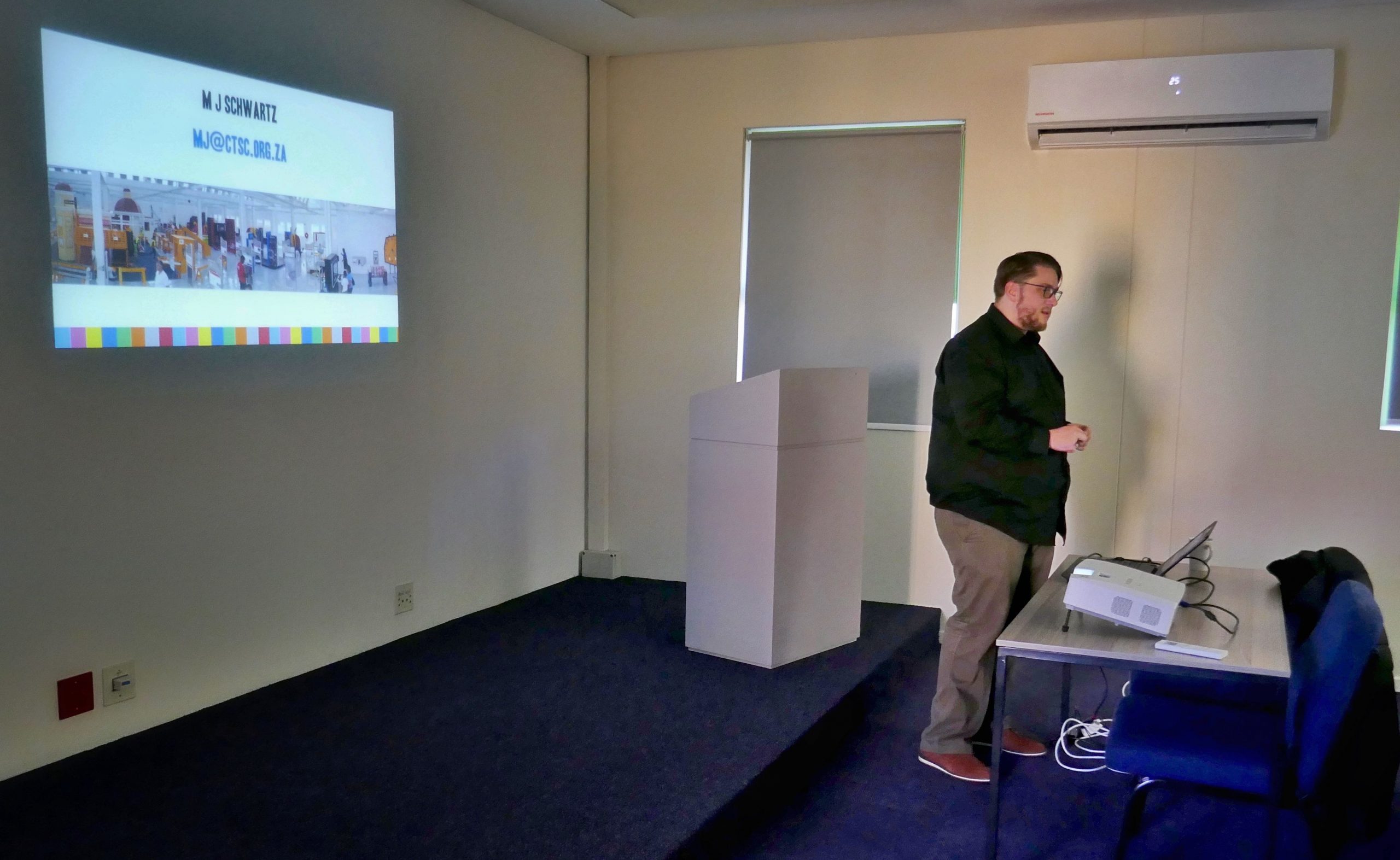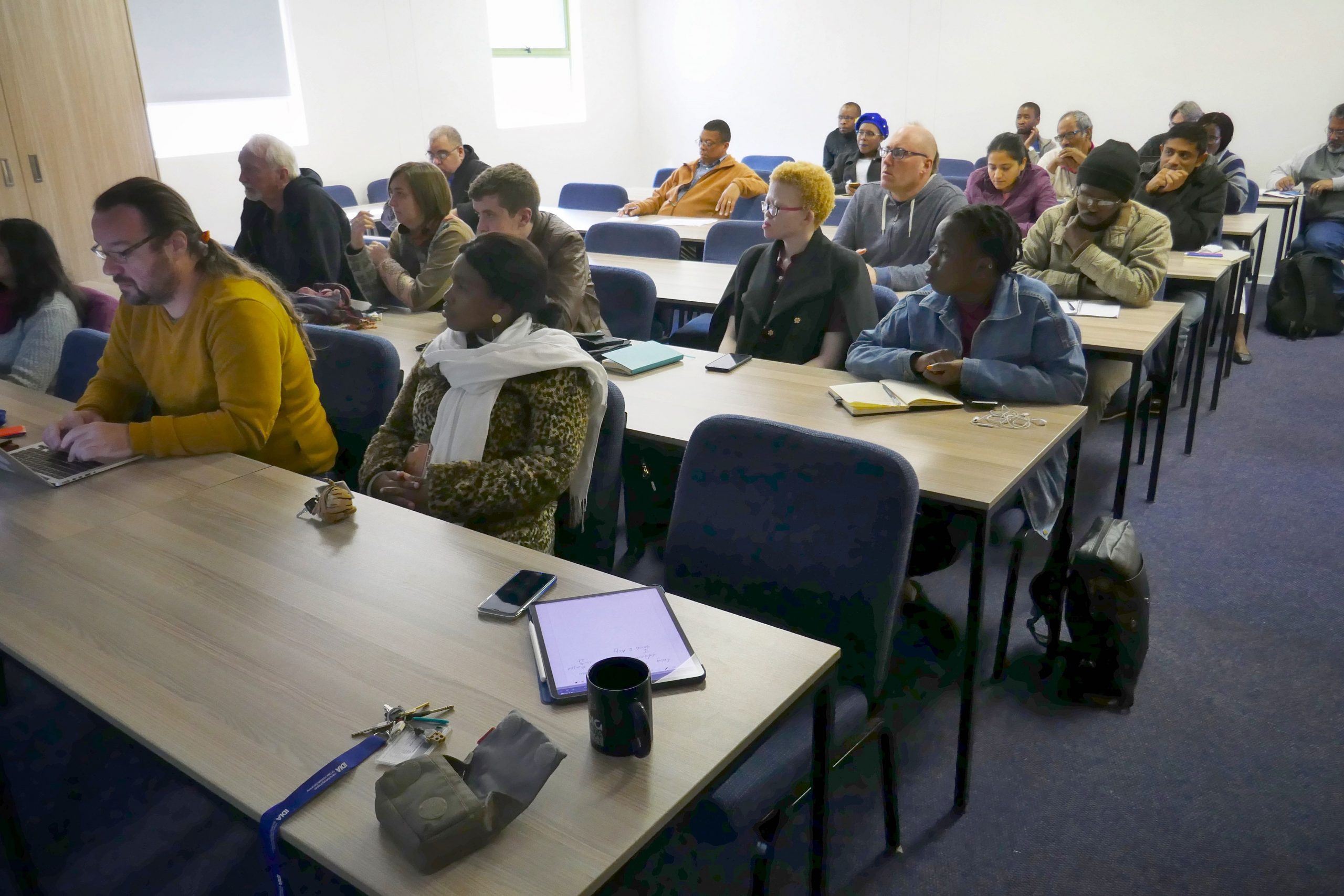We were excited once again to host our second instalment of the SEADS seminar series. We were proud to host students, academics and researchers from various universities including the University of the Western Cape, University of Stellenbosch and the University of Cape Town. This second talk was given by MJ Schwartz from the Cape Town Science Centre. MJ has been involved in Science Centres for the greater part of 12 years. MJ has worked with the University of Zululand Science Centre and recently joined the Cape Town Science Centre. He has extensive experience and exposure in using Science Centres to engage the public in Science, and has done this in both urban and rural contexts for knowledgeable and amateur Scientists.
Science Communicators get people to notice things that they previously would not have noticed. Science Communication goes beyond the sharing of knowledge or raising awareness around scientific issues. Rather, people are at the core of Science Communication, and therefore effective Science Communication must impact society. Science Communication influences other issues, such as inequality; poverty and unemployment.
Effective Science Communications involves:
- Understanding who we are reaching: The middle class and elite can afford science visits, there is growing need to subsidise visits to Science Centres make science more accessible to those who are underprivileged.
- Understanding what is our impact: There is a need to develop a framework for measuring impact. This framework should encompass how to measure impact (theoretical framework such as the Social Cognitive Theory) and the instruments of measurement (evaluation techniques such as surveys and interviews).
- Understanding the philosophy science: This is a critical element of communicating science as field of study, the use and reliability of scientific theory, and the purpose of science.
- Understanding the role of science programmes: Science programmes can be used to motivate and reinforce learning. Science programmes can be used as a method to learn through exposure. Science programmes should motivate and empower.
- Understanding the role of monitoring in Science Communication: Monitoring science communication can influence the strategy of Science .Communication. Science communicators need to understand the goal of Science Communication, and be able to know if they have reached this goal. Monitoring also influences the strategic development of resources.
- Understanding the role of resources in Science Communication: Research must inform resource development. Resources must be informed by a pedagogy with a particular intervention in mind.
MJ proceeded by providing the audience with research he had conducted. Upon conclusion of the presentation, the audience asked questions. The question and answer session allowed the audience to understand that:
- It is also important that the intervention is aligned with the environment in which the intervention is taking place, that is, there must be a correlation between cause and effect.
- Science should be understood as a method to test knowledge claims.
- The experience of urban and rural citizens differ, especially in behaviour, as the speaker noted that the there is more interaction amongst the rural citizens. The speaker further noted the need to adapt this, as in his own experience, engaging in a citizens home language allows more interaction and enables science to be localised.
- The philosophy of science addresses misconceptions, and by unpacking the nature of science these misconceptions addressed.
- Science communication must empower where the intended audience is able to say “I can do science” more than acknowledging that the Science Communicator “knows science”. The greater challenge is to link Science and the audience, and must move beyond the linkage of the Science Communicator and the audience.
- By emphasising the method of science, the audience becomes more curious and interested in science.
- There were advantages and disadvantages of Science Centres being linked to Universities. The advantages would include more stability and long-term approach to organisational development as the overhead costs would be covered by the university partner. The disadvantages would be that the Science Centres are the first cost-cutting source in universities and that they experience a continued decrease in resource allocation due to cost-cutting measures.
- There is a greater need for more independent Science Centres outside of the shopping mall scenarios. The speaker notes that Science Centres in malls have to compete with other entertainment centres such as movies, clothing shops etc. He also notes that visitors to these type of Science Centres may not actually be interested in science as their parents may have left them at the Science Centre so that they could complete their errands. Science Centres outside of shopping malls allow for more interested visitors to explore their curiosity and allows the Science Centre to have a more nuanced view its visitors, that is, the visitors who visit the centre are actually interested in science.
- It is imperative for Science Centres to focus on fund-raising for programmes rather than salaries.
The SEADS team
Carolina, Margherita, Mfundo.


